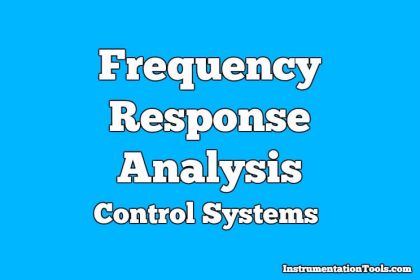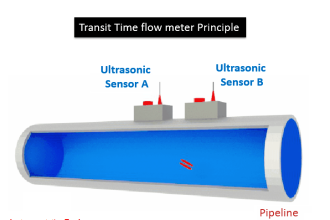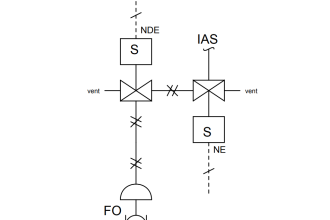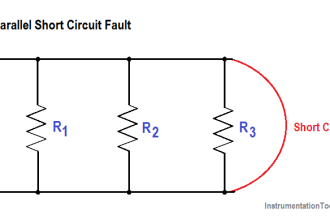Ionization of Gases Questions and Answers
1. Gases emit radiation under which of the following conditions which can be used for determination of gases?
a) When mixed with other gases
b) When kept at suitable temperature
c) With sufficient electrical excitation and at suitable pressures
d) When exposed to radiation
Answer: c
Explanation: Gases emit radiation with sufficient electrical excitation and at suitable pressures. Gases emit radiation in different ways. It can be in the form of spark, arc or glow discharge in different parts of radiation spectrum.
2. Which of the following measuring technique is utilized for measuring nitrogen?
a) By using a method based on gas density
b) By using paramagnetic analyzers
c) By using magnetic wind instruments
d) By using a photospectrometer where a gas sample is analysed and detected with a photocell
Answer: d
Explanation: By using a photospectrometer gas sample is analysed, for measuring nitrogen. It is then selectively filtered by using a photocell which provides an appropriate electric signal.
3. The characteristic emission of which colour, when discharge takes place in a low pressure chamber containing gas sample, will indicate the presence of nitrogen while using photospectrometer?
a) Purple
b) Blue
c) Pink
d) Green
Answer: a
Explanation: The characteristic emission of purple colour, when discharge takes place in a low pressure chamber containing gas sample, will indicate the presence of nitrogen while using photospectrometer. These are usually employed in medical applications.
4. Sample rates of nitrogen meter can be adjusted by doing which of the following?
a) By modifying the amplifier
b) With the help of the needle valve
c) By modifying the detector
d) By changing chopper frequency
Answer: b
Explanation: Sample rates of nitrogen meter can be adjusted with the help of needle valve. Modern nitrogen analyzers have digital displays.
5. Which of the following is the normal sampling rate used in nitrogen meters?
a) 13 ml/min
b) 33 ml/min
c) 3 ml/min
d) 43 ml/min
Answer: c
Explanation: The normal sampling rate used in nitrogen meters is 3 ml/min. Modern nitrogen analyzers have digital displays.
6. Nitrogen meters are calibrated for which of the following to measure nitrogen?
a) Mixture of nitrogen and air
b) Water saturated mixture of nitrogen and oxygen
c) Mixture of nitrogen and hydrogen
d) Nitrogen
Answer: b
Explanation: Nitrogen meters are calibrated for water saturated mixture of nitrogen and oxygen. Hence, this calibration cannot be used for dry gases.
7. Why is nitrogen meters generally not calibrated for dry gases while measuring nitrogen?
a) It causes error
b) Range decreases
c) Reading tend to be non-linear
d) It cannot be measured
Answer: a
Explanation: Nitrogen meters are generally not calibrated for dry gases because it will lead to error in the reading. The error will be upto 2%.
8. In which of the following ways can nitrogen be calibrated for dry gases?
a) By modifying the amplifier
b) By adjusting the needle valve
c) By modifying the detector
d) By changing chopper frequency
Answer: b
Explanation: Nitrogen can be calibrated for dry gases by adjusting the needle valve. In this way, the error will be compensated.
9. The voltage required for striking the discharge in the presence of nitrogen is 1500V.
a) True
b) False
Answer: a
Explanation: The voltage required for striking the discharge in the presence of nitrogen is 1500V. This voltage is generated using a DC-DC converter.
10. The light output from the discharge tube is interrupted by means of a rotating slotted disc.
a) True
b) False
Answer: a
Explanation: The light output from the discharge tube is interrupted by means of a rotating slotted disc. Hence, a chopped output is obtained.
















